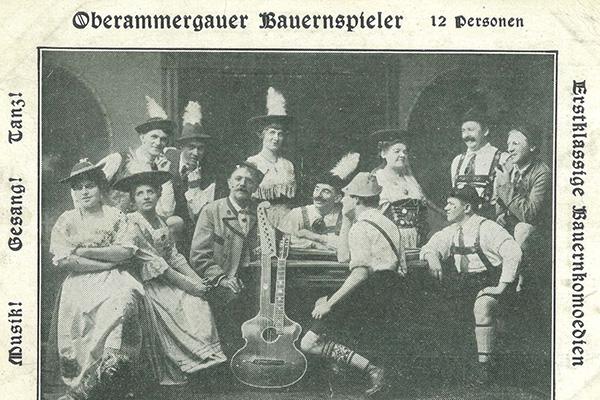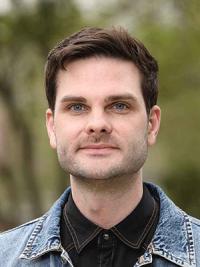
Peter Graff, visiting assistant professor at Denison University, presents "Imagining the Homeland in Times of Trauma: Immigrant Musical Theater and the Great War." This lecture is sponsored by EMIC, Graduate Student Interest Group for Expressive Culture; co-sponsored by the School of Music and The Ohio State University Libraries.
As the devastating effects of the First World War rippled across the globe, immigrants from the warring nations watched on as the war reshaped the places they once called home. In this presentation, Graff explores how two immigrant communities responded to this time of crisis by constructing visions of their former homeland that were backward-looking, nationalistic, and often imaginary. Graff looks first at the ways Cleveland’s German immigrant community projected its divided loyalty throughout the war. Amid growing anti-German sentiments and accusations of foreign allegiance, the city’s only German-language theater, the Deutsches Theater, grew more active and increasingly programmed revisionist retellings of wartime events. The theater sought to comfort members of the German community while projecting positive images of the Fatherland to the broader public. Key to its strategy was an embrace of regional German folk culture — scenes set in Bavarian villages, Alpine yodeling, and folk dancing — to help the community distance itself from the barbarity of the greater German Empire.
The second half of this presentation examines similar strategies that Cleveland’s Slovenian dramatic societies utilized after their former homeland was incorporated into the new nation of Yugoslavia in 1918. Faced with the disappearance of their homeland, Slovenians living in America asserted their national heritage by participating in cultural organizations, including two new dramatic societies that formed in 1919. The anxieties over cultural erasure led the dramatic societies to fashion idealistic images of Slovenia through a reliance on nationalist emblems. Their productions utilized folk songs and costumes of a bygone agrarian lifestyle, and their plots drew on pastoral themes far distant from the steel mills and railyards of Cleveland. Although this paper focuses on only two immigrant groups, Graff's findings demonstrate more broadly how immigrant diasporas exploit folk elements when crafting visions of home, both real and imagined.

Peter Graff, a scholar of music and American popular culture, is visiting assistant professor at Denison University. His current book project, Ethnic Theater in Cleveland: Music, Politics, and Memory (under contract with the University of Illinois Press) examines how immigrant and ethnic groups used the theater to navigate issues of identity in the 1910s and 1920s. In addition to his research on ethnic theater, he is working on a new project that examines queer identities crossing into the musical mainstream during the 1980s.
This lecture is free and open to the public. No ticket required.
Lectures in Musicology is co-sponsored by The Ohio State University Libraries.
- Lectures are held Mondays at 4 p.m. in the 18th Avenue Library, 175 W. 18th Ave. (Music/Dance Library, second floor, room 205), unless otherwise noted. These events are free and open to the public. Campus visitors, please use either the Tuttle Park Place Garage or the Ohio Union South Garage. All other garages in the vicinity of the 18th Ave. Library are closed to visitors before 4 p.m.
Driving and Parking Instructions
All events are subject to change.
